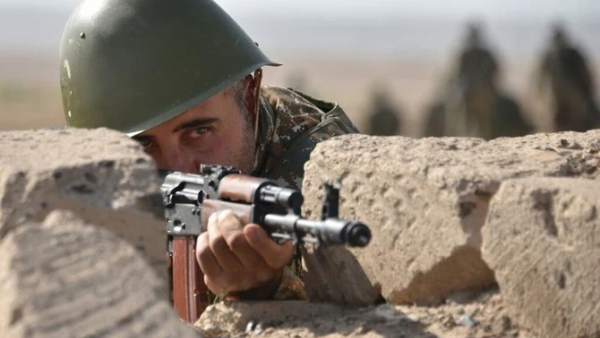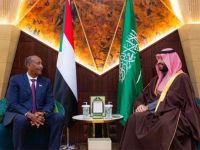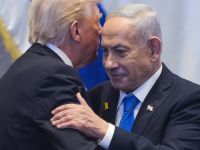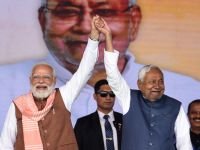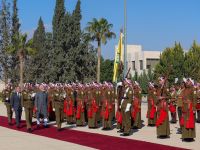During the 2020 Karabakh war and after that, foreign actors had an important role in the extensive developments of Azerbaijan. Baku's interpretation of the cease-fire declaration in Karabakh on November 9, 2020, between Armenia, Azerbaijan, and Russia is the right to create a "corridor" in an Armenian region on the Iranian border.
In this regard, there has always been tension in the past two years, and clashes in the past few months have led to the occupation of a part of Armenia's territory (more than 10 square kilometers) by Azerbaijan. In the meantime, what is very important now is the competition, approach, and role of major foreign actors in the South Caucasus. Will this competition lead to peace and stability between Yerevan and Baku?
Russia
In fact, in the last two years, Russia tried to define for itself the role of mediator, monitor, and peacekeeping force in the Caucasus and Karabakh region with the Collective Security Treaty Organization (CSTO) and keep the parties dependent on itself.
The presence of the Russian peacekeepers in Karabakh (with a five-year mission) is while Yerevan is a member of the Collective Security Treaty Organization (CSTO), but the "Western-oriented government" of Armenia doubts its effectiveness. This doubt has been reinforced by Armenia's fruitless request (from CSTO) for helping Yerevan.
Yerevan is a member of the Collective Security Treaty Organization (CSTO), but the "Western-oriented government" of Armenia doubts its effectiveness
In fact, although Russia considers itself the main player in the region, using the CSTO and the Eurasian Economic Union, following the Ukraine war, increasing doubts about Moscow's ability, Yerevan's frustration and criticism of the reactions to the Collective Security Treaty have led to requests such as the suspension of Armenia's membership in the CSTO.
In fact, Russia has good relations with Azerbaijan and Armenia and has tried to play its main role in solving the crisis, by trying to follow its approach in the past two years in the crisis, forming and continuing the trilateral talks between Armenia, Russia, and Azerbaijan, reopening regional transport channels and using CSTO observers.
In fact, Moscow wants to continue to play a broad and fundamental role in a stable ceasefire and the withdrawal of forces, guaranteeing stability and full implementation of all the clauses of the tripartite agreements, and determining the borders and the peace agreement.
In addition, although Moscow is worried about the cooperation between Baku and Ankara in the region and does not want Turkey to appear as a top winner in the South Caucasus, it also emphasizes the importance of its relations with Ankara and is more cautious about creating tension with Turkey.
Moscow is worried about the cooperation between Baku and Ankara in the region and does not want Turkey to appear as a top winner in the South Caucasus, it also emphasizes the importance of its relations with Ankara and is more cautious about creating tension with Turkey
In the meantime, Russia is worried about the possibility of establishing international observers along the border of Armenia and Azerbaijan, increasing Western influence and NATO in the South Caucasus, and weakening Moscow's efforts and Russia's position. In this regard, Moscow accused the West of trying to hijack the peace process of Armenia and Azerbaijan.
European Union and America
Simultaneously with the reduction of Russian influence in the South Caucasus and the strengthening of Baku's military power, many Western parties, the Armenian diaspora, European countries, and the United States are worried about the strengthening of Turkey's role in the South Caucasus. It also seems that many in the West do not want a greater role for Iran, China, and Russia in the future of the South Caucasus.
This is while after Russia's attack, Europe has considered replacing Caspian energy and doubling Azerbaijan's gas supply to Ukraine by 2027. In this situation, the United States and the European Union, considering their interests, have taken the leadership of efforts to negotiate a lasting peace agreement between Baku and Yerevan.
Europe has considered replacing Caspian energy and doubling Azerbaijan's gas supply to Ukraine by 2027
The presence of the speaker of the American House of Representatives in Yerevan, supporting Armenia, condemning Azerbaijan's attack, and being ready to help Yerevan have been part of America's diplomatic efforts for several months. In addition to Washington's emphasis on the immediate cessation of hostilities, tripartite consultations by US officials with Azerbaijan and Armenia, and emphasizing the need for peace, Washington is eager for a diplomatic solution to the crisis. From this point of view, the upcoming peace treaty between Yerevan and Baku can delete Russia from this geopolitical arena.
This is seen as a kind of victory in the battle between democracy and tyranny, containment and reduction of Russia's presence in the South Caucasus, and the withdrawal of Russian peacekeeping forces from Karabakh. In addition to this, despite the ineffectiveness of the role of the Minsk Group in solving the crisis, the European Union has now emerged as the main actor among the foreign actors of the South Caucasus.
the European Union has now emerged as the main actor among the foreign actors of the South Caucasus.
Brussels and actors like France are looking at reducing Russia's role in the region. By establishing several tripartite meetings with both sides of Yerevan and Baku, they have pursued plans such as the exchange of prisoners of war, and the appointment of a commission to determine the borders and the state borders of Armenia and Azerbaijan. It also seems that the Europeans have a positive view of the long-term peace plan in the region, the protection of the cultural and religious heritage, the need to resolve the Karabakh issue, and the rights and security of the Armenians of Artsakh (Karabakh).
China
China is trying more to consolidate its economic position in the South Caucasus and has largely maintained a neutral position in military and geopolitical conflicts and has asked both Armenia and Azerbaijan to resolve their differences through dialogue. However, despite the fact that China is an important trading partner for Azerbaijan, it is concerned about the cooperation between Baku and Ankara and the role of Turkey in the region, Pan-Turkism, and the increasing influence of Turkish soft power.
In the meantime, the reduction of Russia's role in the South Caucasus may be an opportunity for China to act, but Beijing does not want to see the expansion of NATO's role in the South Caucasus.
Important regional actors
Iran: Iran has a common border with Armenia and Azerbaijan. During the Second Karabakh War, Tehran tried to implement a kind of balancing policy between the two countries. But at the same time, it has been afraid of the expansion of Turkish influence in the South Caucasus, the close relations of the Republic of Azerbaijan with Israel, and the expansion of NATO's influence in its northern borders.
In the current situation, even though Iran supports the territorial integrity of Azerbaijan, it cannot be a passive viewer of the encirclement of Armenia, the removal of the Iran-Armenia border, the disconnection of Iran's connection with Georgia and the Black Sea, the connection of Turkey to Central Asia, the strengthening of NATO's presence and Failure of the North-South Corridor project. Although Iran's trade volume with South Caucasus countries is less than Turkey's trade volume with these countries, it recently opened its consulate in the south of Armenia.
Although Iran's trade volume with South Caucasus countries is less than Turkey's trade volume with these countries, it recently opened its consulate in the south of Armenia.
In addition to this, although the reduction of Russia's presence in the South Caucasus can be an opportunity to increase Iran's role, Tehran does not want the widespread tension between the Republic of Azerbaijan and Armenia to have wide and diverse negative effects on Iran's borders. Therefore, it has emphasized many times to play the role of mediator in the crisis and the immutability of borders.
Turkey: In the last two years, Turkey has stood by the Republic of Azerbaijan with all its economic, security, political, and military facilities. In fact, Turkey is the most important supporter of Baku in accessing the connection of the three regions of the main territory of Azerbaijan, Nakhchivan, and the main territory of Turkey.
Also, Ankara's approach to cultural, ethnic, and strategic ties shows growing solidarity with Baku. Meanwhile, Turkey is also trying to normalize relations with Armenia and reduce Yerevan's dependence on Russia and Iran.
India-Pakistan rivalry
Pakistan is the only country that does not recognize Armenia as a country. But the relations between Baku and Islamabad have increased and significantly improved with the joint military exercise between Turkey, Pakistan, and Azerbaijan (Three Brothers – 2021) in Baku. In contrast, India wants to play a greater role in the South Caucasus. Although, in the first six months of 2022, India was introduced as the fourth export partner of Azerbaijan.
New Delhi's fears of the expansion of Turkey's role in Central Asia, the height of military cooperation between Turkey, Azerbaijan, and Pakistan, and the danger of cutting off the north-south corridor led to the extensive strengthening of relations and the sale of arms to Armenia, confronting Azerbaijan in the field of diplomacy and wider cooperation with Greece against the Turkey-Pakistan axis.
Vision
The complex geopolitics of the South Caucasus and the relations between Armenia and Azerbaijan have become a special example in the international system. The conflict between Christian Armenia and Shiite Azerbaijan can put the best allies against each other and mobilize former foreign enemies in support of one actor. Also, apart from the geopolitical variable, national interests and economy, and energy have an important role in the type of actors' activism in the South Caucasus.
The conflict between Christian Armenia and Shiite Azerbaijan can put the best allies against each other and mobilize former foreign enemies in support of one actor.
The situation is such that Pakistan, Turkey, and Israel can face Greece, India, Russia, and Iran. Or even the interests of Russia and the West should be coordinated to achieve stability. In the meantime, although, the negotiations on access to the peace treaty at the Prague meeting of the leaders of Azerbaijan and Armenia (organized by the European Union) have raised many hopes. it seems that there are still many challenges to ensure the interests of the main players in reaching a win-win agreement.


